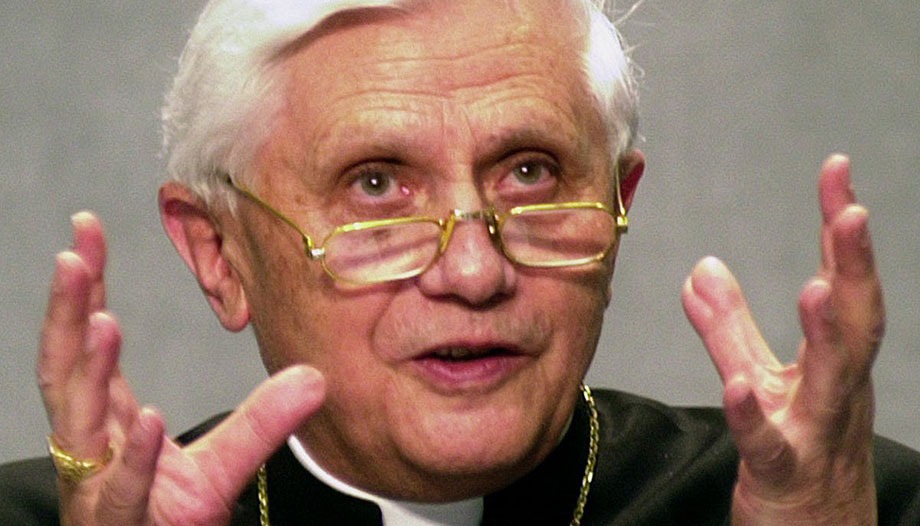Benedict XVI in 2012, on the occasion of his birthday gave thanks "to all those who have always (made him) perceive the presence of the Lord, who (accompanied him) so that he would not lose the light" (Benedict XVI, Homily 16/04/2012). With these words the Pope reflected on the meaning of light on Easter night, on which night the water of the baptismal font is also blessed and which, providentially, as a premonitory sign, was the first of those baptized on Easter morning in 1927 in the small village of Marktl am Inn or "Marketplace by the river Eno" (White, Pablo. Benedict XVI, Biography. St. Paul's. 2019, p. 35).
A classic premise recognizes that God not only makes use of his attribute of Provident to favor those in need with material goods, but also with spiritual realities and thus attends to the two dimensions through which man has to travel his vital path: the temporal and the eternal, the transitory and the perennial, that which corrupts and that which lasts until eternity. And so, in little Joseph, in the waters of that newly blessed fountain, the youngest member of the Ratzinger family was called to be born again for God, for his Lord, just a few hours after his birth.
Joseph Ratzinger, teacher and theologian
With this analogy, I firmly believe that God prepared at the time the teacher and theologian Joseph Ratzinger to teach with simplicity the mysteries of the Kingdom to a whole society that would begin to take steps no longer towards God, but away from Him, a society that would no longer be concerned with denying His existence, for already the new line is simpler: "to live as if God did not exist" and, in the midst of that universal challenge, one of the workers in the vineyard was called, "taken from among men, appointed in behalf of men for the things of God" (Heb 5:1).
Much can be written about the remembered Benedict XVI, and we would not be able to exhaust his person, his figure, his words, his thought and his theology. A well-known Spanish priest, whose name I will not mention but who, I am sure that in his time ─in some of his works─, will know how to coin a phrase that he pronounced in the presentation of one of his books when consulted about what Ratzinger means for many young people of our time. He said firmly and convinced of what his statement means that, "the best of Ratzinger is yet to come."
Man of study and prayer
I echo this phrase without the intention of appropriating it, just two years before celebrating the centenary of the birth of Peter's successor, who was able to make use of his profile as a teacher, theologian and pastor, to show a theology dictated in simple words, with a language that is not only acceptable but also attractive to the young people of our time.
Only in this way, from the simplicity and depth of the experience of a loving God, can one enter into the theology of a man admirable in himself, a man whom, without having him in person, one could discover through his books, his theology, his thought, his prayerful experience, a discovery that showed us not only the Pope at his desk, but also the man of the kneeler, the man of prayer, the man who had made his own ─without knowing it─ the experience of Jesus as the light of his life and his works.
"I know that God's light exists, that he is risen, that his light is stronger than any darkness; that God's goodness is stronger than every evil in this world. This helps us to go forward, and at this hour I give heartfelt thanks to all those who continually make me perceive God's 'yes' through their faith" (Benedict XVI, Homily, 4/16/2012).









